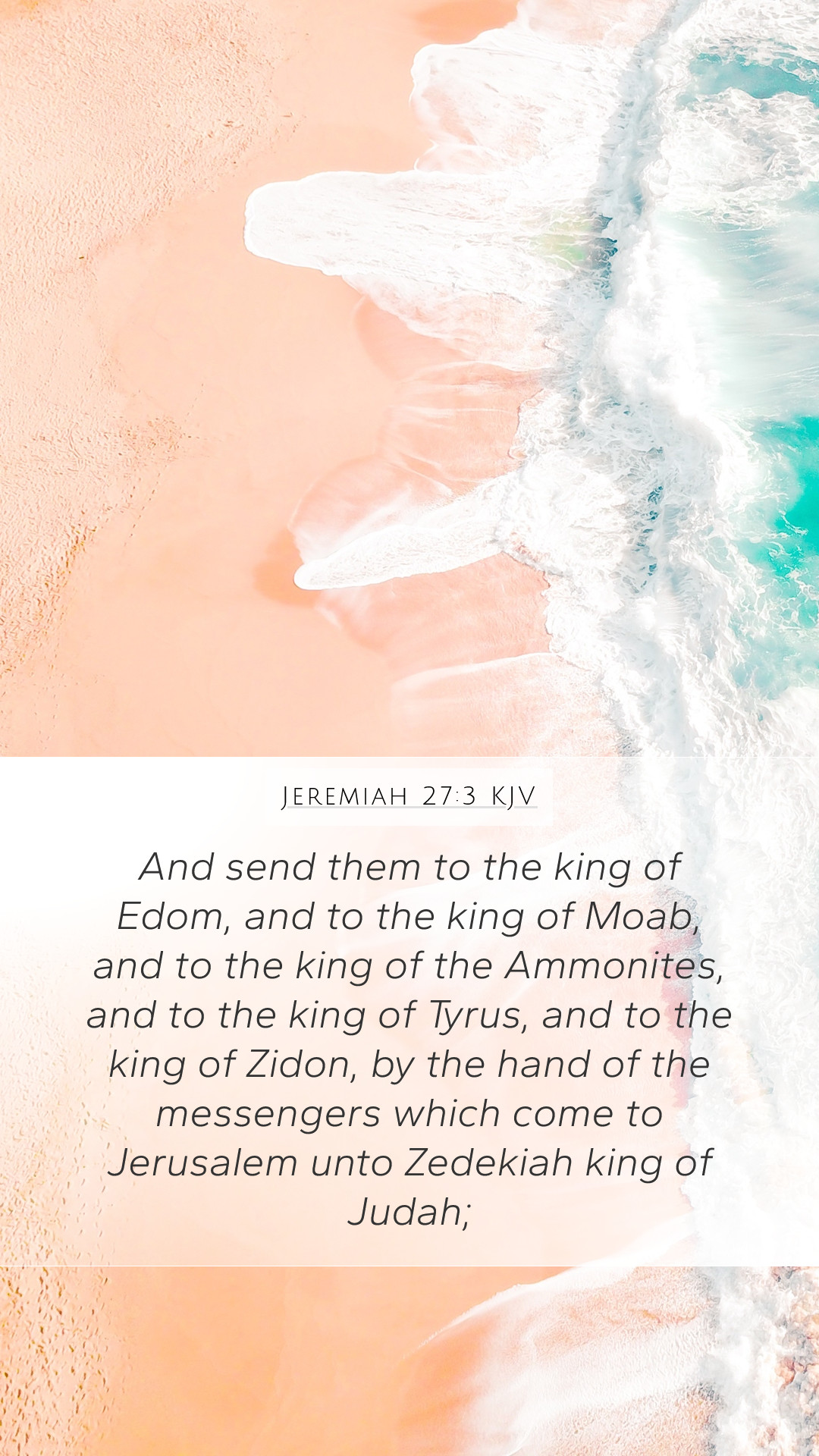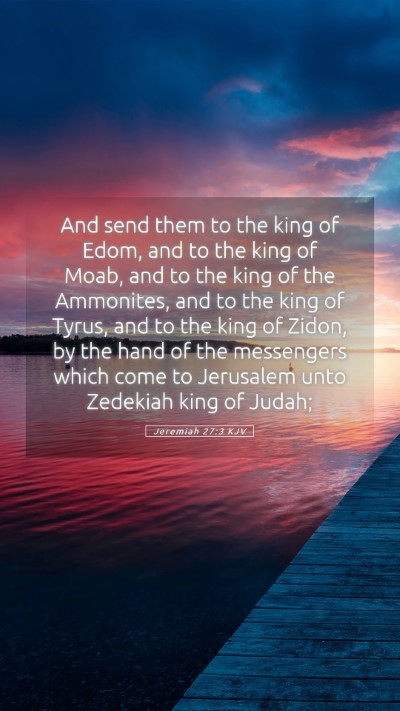Understanding Jeremiah 27:3
Jeremiah 27:3 states, “And send them to the king of Edom, and to the king of Moab, and to the king of the Ammonites, and to the king of Tyrus, and to the king of Zidon, by the hand of the messengers which come to Jerusalem unto Zedekiah king of Judah.” This verse encapsulates a significant moment during the time of Jeremiah, where God instructs him to deliver a message to surrounding nations.
Context and Background
The book of Jeremiah reflects a tumultuous period in Israel’s history, characterized by impending judgment and calls for repentance. Jeremiah, as a prophet, serves as a messenger of God's word amid national crisis. This verse pertains particularly to the geopolitical relationships during the Babylonian siege.
Bible Verse Meanings and Interpretations
In this verse, we see an action commanded by God—sending messengers to declare His sovereignty and purposes to various kings.
- Matthew Henry's Commentary: Henry outlines that Jeremiah's instruction was significant as it established God's authority over the nations and showcased the impending fate that awaited them alongside Judah, emphasizing the unity of God's plan for all nations.
- Albert Barnes' Analysis: Barnes explains that the inclusion of the nations signifies that God's judgment is universal. Each king represents the broader community that would also be affected by the rise of Babylon and the ultimate sovereignty of God.
- Adam Clarke's Insights: Clarke provides a historical context, indicating that these nations, having their own leaders, were called to recognize God’s hand in the unfolding events in Judah. It showcases God’s overarching power and the prophetic role of Jeremiah.
Key Themes in Jeremiah 27:3
- God's Sovereignty: The verse emphasizes that God controls the destinies of nations. Jeremiah's directives were not merely political but divinely ordained.
- Prophetic Responsibility: Jeremiah as a prophet had the duty to communicate God's word, even to foreign kings, which illustrates the extent of God's message reaching beyond Israel.
- Judgment and Hope: The calling out to these nations built awareness of the divine judgment that was to come, while simultaneously offering hope through obedience to God's command.
Application of Scripture: How to Apply Jeremiah 27:3 in Our Lives
Understanding this verse encourages us to recognize God's authority in our lives and the importance of obediently listening to His messages. Here are practical applications:
- Embrace the concept of divine sovereignty in daily decision-making.
- Engage in proactive obedience to God's word, sharing His teachings with others, just as Jeremiah did.
- Recognize and respond to the broader implications of our actions in the context of our community and the world, understanding that we are all interconnected under God's will.
Related Bible Cross References
- 2 Chronicles 36:6-7: Discusses the interactions between King Nebuchadnezzar and the nations, emphasizing God’s judgment.
- Jeremiah 25:15-18: Presents God’s message to all nations and foretells the coming judgment through Babylon.
- Isaiah 40:15: Highlights the insignificance of nations before God to reinforce the theme of divine sovereignty.
Bible Study Insights
This passage is an essential part of biblical exegesis as it plays a crucial role in understanding the prophetic literature of the Old Testament. Proper context enhances our understanding of Jeremiah's role in the prophetic canon, and how God communicates His plans.
Conclusion
In summary, Jeremiah 27:3 serves as a powerful reminder of God’s sovereignty and the prophetic calling given to individuals. It also encourages Bible study groups to deeply engage in scripture analysis and to apply these insights in their daily lives. Understanding Scripture becomes a means to navigate the complexities of our world, placing trust in God's enduring authority.


